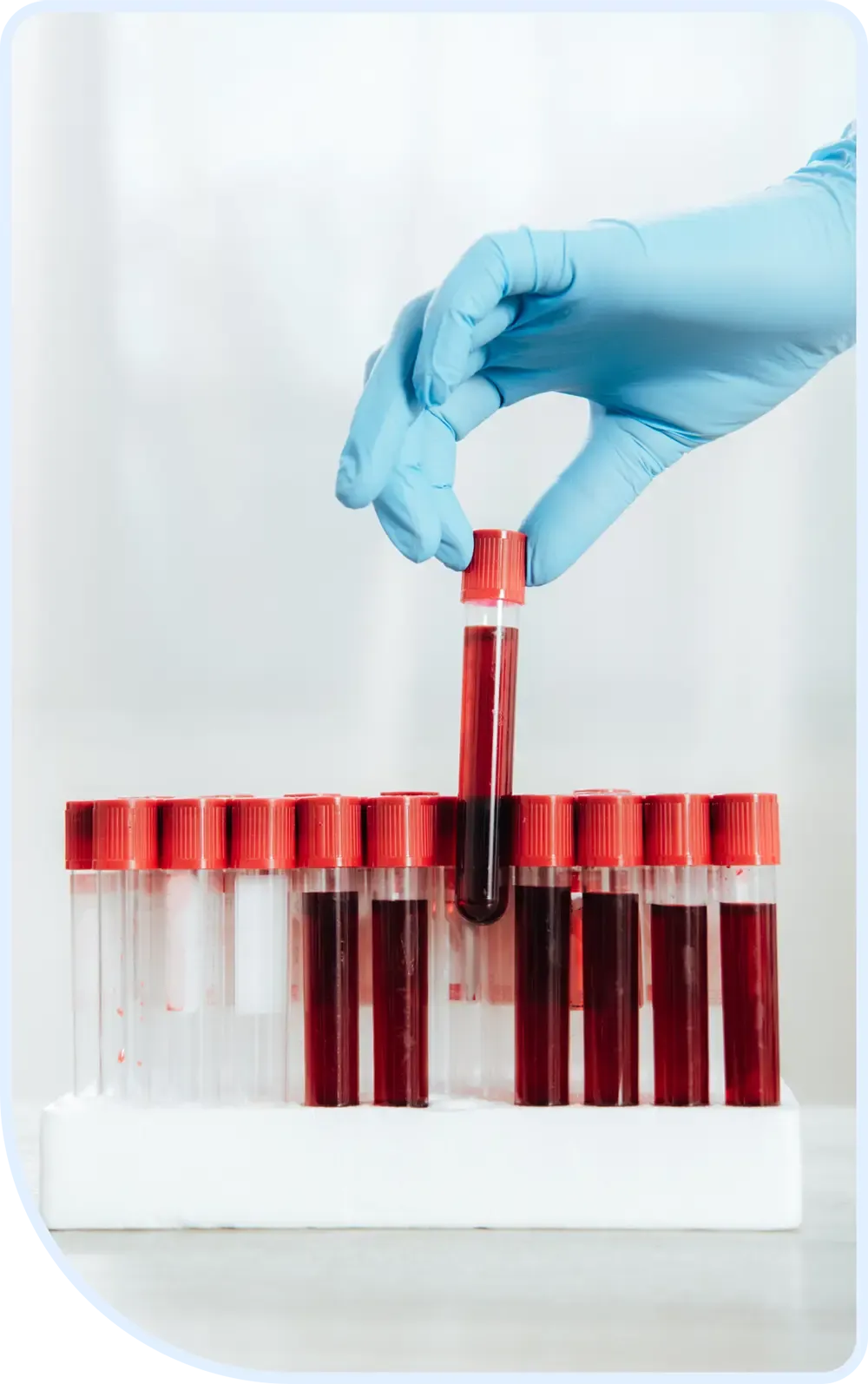
Conveniently reserve your spot with just a few clicks through our easy-to-use online booking system.


Multiple myeloma, also sometimes called simply myeloma, is a cancer of plasma cells, a type of white blood cell found in the bone marrow. These abnormal plasma cells can crowd out healthy blood cells and cause complications like bone pain, anaemia, and kidney problems.
You are not required to provide a referral letter from your doctor or GP.
Start a visit quickly and discreetly whenever works best for you.
Our doctors review symptoms, prescribe treatments if needed.
Proceed with your healthcare journey as you wish. You're in control.
You control medical records, access anytime.
Diagnosing multiple myeloma involves a series of tests and evaluations.
Your myeloma assessment begins at the hospital with a consultation with a haematologist. These specialists are equipped with the expertise to guide you through the diagnostic process.
From there, blood tests play an essential role. These tests can reveal abnormal levels of certain proteins and other substances indicative of myeloma.
A urine test is also important. It detects Bence Jones proteins, which are specific types of light chain proteins. These proteins can sometimes cause kidney damage.
Finally, a bone marrow test is crucial for a definitive diagnosis. This procedure involves taking a small sample of bone marrow, usually from your hip bone.
Imaging tests may also contribute to your diagnosis.
Сontact us to schedule an appointment or learn more
Conveniently reserve your spot with just a few clicks through our easy-to-use online booking system.
Have a question or request? Drop us a message, and our team will get back to you promptly.
Feel free to give us a call, and our friendly staff will be glad to assist you over the phone.
Revised International Staging System (RISS)
RISS is a tool that helps doctors predict how well a patient might respond to treatment. It considers four key factors to assess the aggressiveness of the cancer:
This protein in your blood indicates overall health.
Elevated levels of B2M are typically seen in multiple myeloma.
High levels of this enzyme suggest a more advanced stage of the disease.
Certain genetic alterations can signify a more aggressive form of myeloma.
Using these markers, the cancer is staged between stage I and III:
In stage I, the disease is in its least aggressive form. Treatment at this stage can be most effective.
Stage II is marked by a decrease in albumin levels.
Stage III is characterised by significantly high levels of B2M, indicating widespread and advanced disease.
From Home or Face to Face, all at your convenience
Schedule a Video Consultation or a Face-to-Face appointment at your convenience by using our online booking system.
Schedule a Video Consultation or a Face-to-Face appointment at your convenience by using our online booking system.
Your dedicated Specialist Doctor will provide you with personalized treatment, tailoring it to your specific needs, and may include necessary medication.
Myeloma treatment is tailored to your specific needs, considering factors like the symptoms you're experiencing and your overall health.
Myeloma treatment is tailored to your specific needs, considering factors like the symptoms you're experiencing and your overall health.
Initial Treatment Strategy
Typically, the first line of treatment involves a combination of chemotherapy, targeted cancer drugs, and steroids. This multifaceted approach aims to control the disease.
Managing Relapses
Myeloma can sometimes relapse, meaning the disease returns after a period of remission. In such cases, additional treatments are necessary, and the options may vary based on your situation.
Role of Stem Cell Transplant
Stem cell transplants are a significant component of myeloma treatment. This procedure allows you to receive high doses of chemotherapy to eradicate damaged bone marrow cells. Post-chemotherapy, new stem cells are introduced into your bloodstream to rebuild healthy bone marrow.
Using Radiotherapy
Radiotherapy helps address areas where myeloma has weakened bones or is causing pain. It can reduce discomfort and slow down further bone damage.
Living with myeloma involves not just treating the cancer itself but also managing various symptoms and problems that arise from the disease and its treatments. Supportive treatments are essential to prevent or control these issues.
Communicate any concerns with your doctor or nurse. They can provide:
To manage symptoms and improve quality of life
To aid in daily living and mobility
Tailored to your specific needs
To specialists or symptom control teams, such as palliative care, for comprehensive support
Living with myeloma involves not just treating the cancer itself but also managing various symptoms and problems that arise from the disease and its treatments. Supportive treatments are essential to prevent or control these issues.
Communicate any concerns with your doctor or nurse. They can provide:
To manage symptoms and improve quality of life
To aid in daily living and mobility
Tailored to your specific needs
To specialists or symptom control teams, such as palliative care, for comprehensive support
If you or a loved one is dealing with a myeloma diagnosis, our dedicated team of haematologists in London is here to provide compassionate, personalised care.
We understand the intricacies of this condition and are committed to offering the support and medical expertise you need at every stage of your journey.












